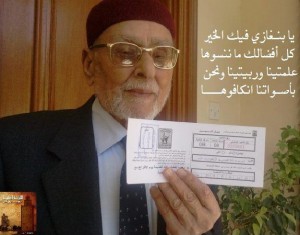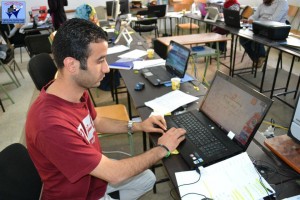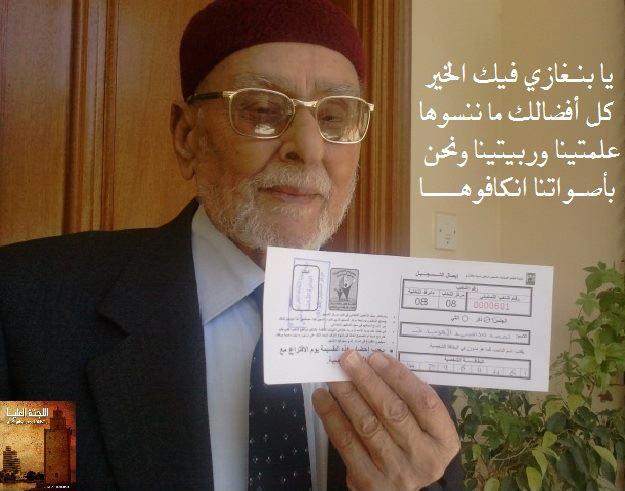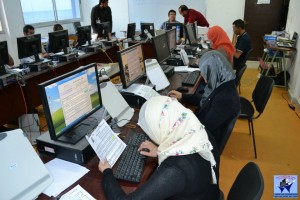Salah Ben Ali has lived all his life in Benghazi. An administrator with an international NGO based in Libya, he also writes . . .[restrict]for the Benghazi-based newspaper Alkalima. He pens some thoughts on the upcoming city elections.
Benghazi, 28 April:

“Praise be to Allah, who extended my life to this day,” remarked Ahmad Swadiq, aged 92, after receiving a voting card for the Benghazi local elections.
Born in Tobruk, he was a soldier in 1940 in the Senussi army during the fight against Italian colonization under the command of the then Emir Idris Al-Senussi, later King Idris. He was elected to the parliament of the Emirate of Cyrenaica which existed between 1949 and 1951. During King Idris’ reign he served variously as undersecretary at the communications ministry, minister of economy and Minister of Youth and Sports which position he held when Qaddafi seized power in 1969. Like so many other government ministers he was imprisoned by Qaddafi.
The revolution and now elections in Benghazi are as much historic for him as those earlier events. He never expected to see the country free or have the chance to vote again in a free election.
Getting everyone registered and given their cards has not been easy – and it is just part of the process of organising the city council elections which will take place on 5 May.
A month and a half ago, I met Sulaiman Zubi at Benghazi’s Lighthouse Palace. Sulaiman was given the task of chairing the city’s Supreme Elections Commission by Benghazi Local Council, civil society organisations and political activists in Benghazi. A retired judge, his background includes a masters degree in law from the United States and he was well-known for his opposition to the Qaddafi regime.
He has managed to pull together a large team of volunteers, mainly young people, to prepare for the elections. Registration finally finished on Thursday.

“When you have youth like those in Benghazi, you can achieve anything,” he said. “Nothing is impossible for them; they work hard at all hours, even early morning, and in fact, their devotion to the job and their hard work can only be compared to a hive of bees.”
Vast numbers of people in Benghazi keenly support the city’s elections. Although registration was slow to start with it speeded up in the last days and there was a surge of people wanting to register on Thursday, the last day.
The essence of elections is very similar wherever they are held in the world – if certain basic requirements are met. These requirements include a Supreme Elections Committee, polling stations, voter registration, transparency and the presence of election observers. In addition there must be follow-up, monitoring and planning for future elections. It will probably be different after the constitution is written, but Benghazi should not be made to wait for that. The people of Benghazi love their city and the example of Misrata and its successful election campaign has provided a great encouragement. It was prepared and presented by Mohamed Berween, the mastermind behind Misrata’s local council elections.
Benghazi has been divided into 11 electoral district and is geographically confined to a very narrow area which separates the historical outskirts of Benghazi from the city itself. This is something which was first done during Qaddafi’s era. The Transitional Council, it seems, following the same division procedures – which were strongly opposed by the citizens in both words and documents – paid no attention to the wishes of the people.
Long lists of those barred from running in the election are displayed on the Lighthouse Palace walls. They include former members of Qaddafi’s Revolutionary Committees. These lists are referred to as “Lists of the Disgraced” and members of the public general public have looked carefully at them. They were interested to see on the list people whose very names once struck fear into the hearts of thousands. Now, it seems, that many of those same people have gone to great lengths to have their names removed from the lists.
Interestingly, during my visits to voter registration centres, I noticed that the female attendance was sometimes as much as double that of men. On the other hand, women account for just five percent of candidates. I would hope many will be elected in recognition of the role of Libyan women in the Revolution in all its various stages.
[/restrict]










